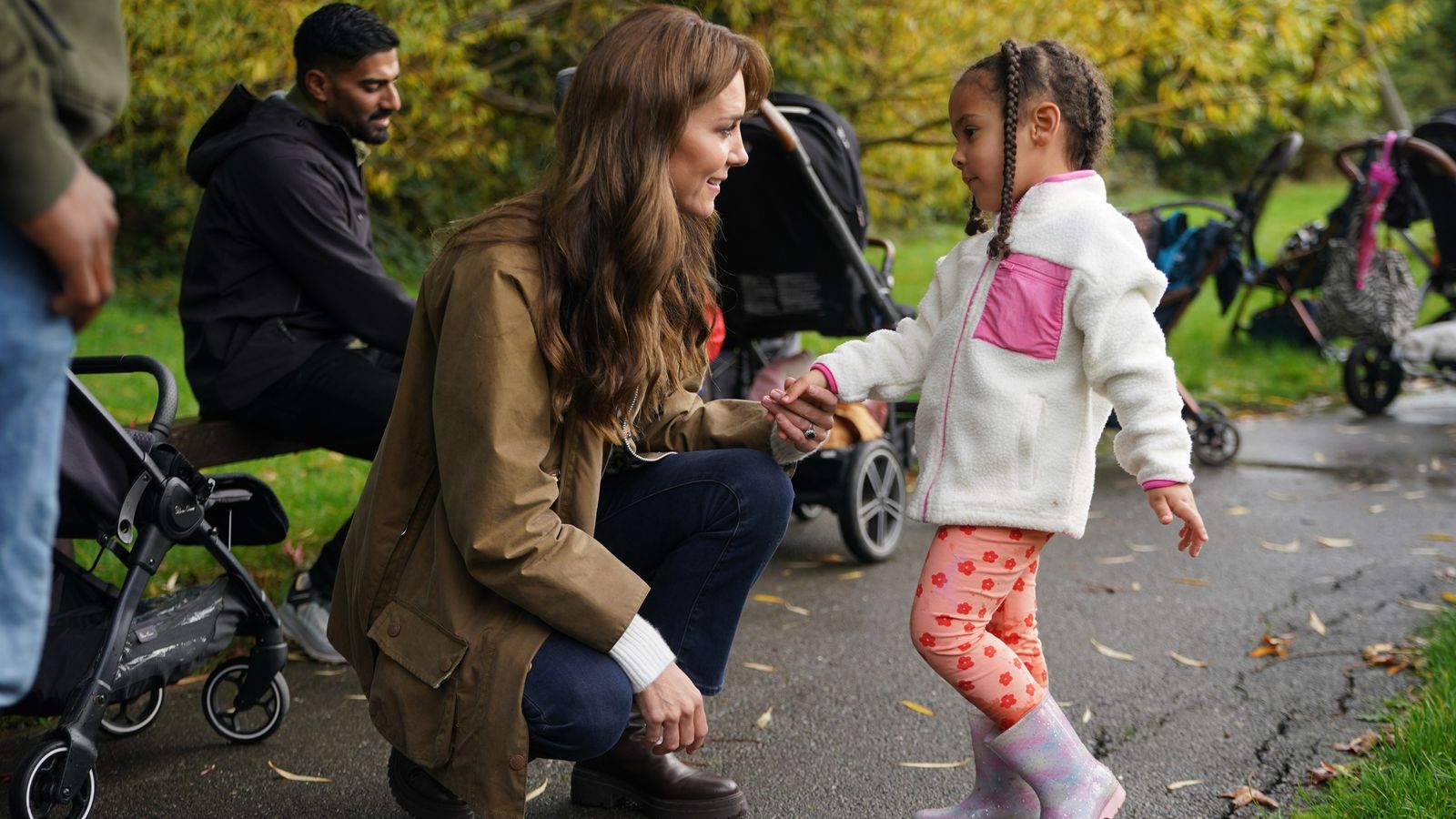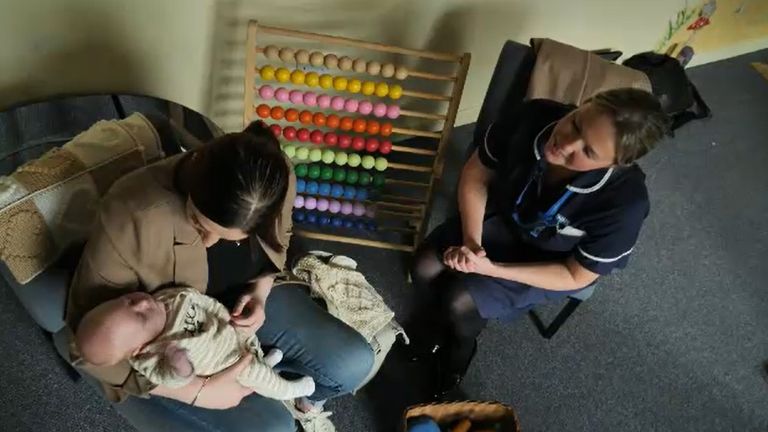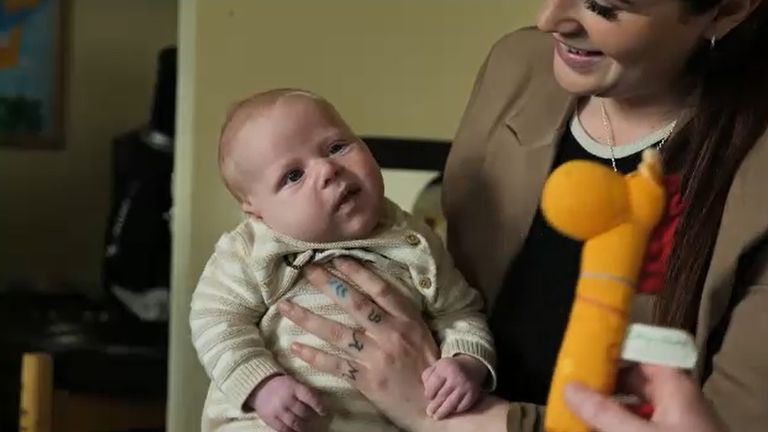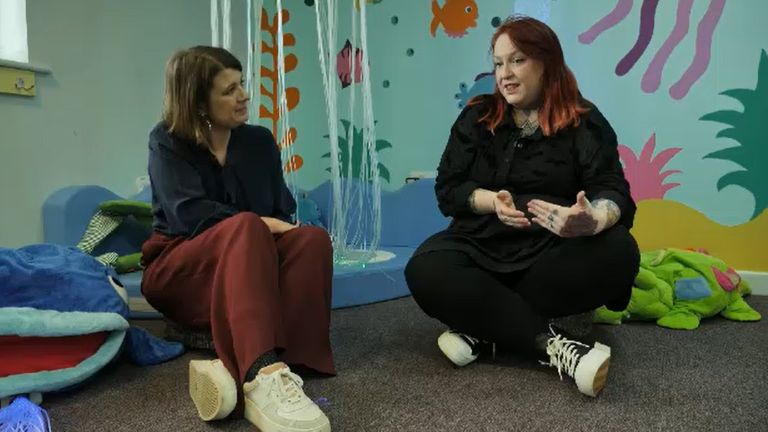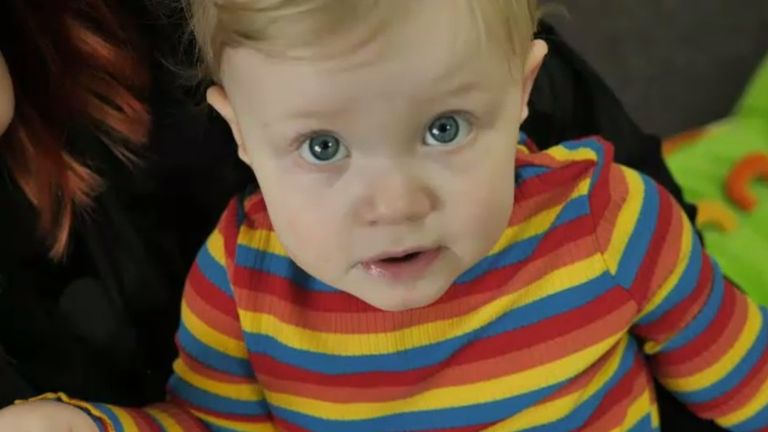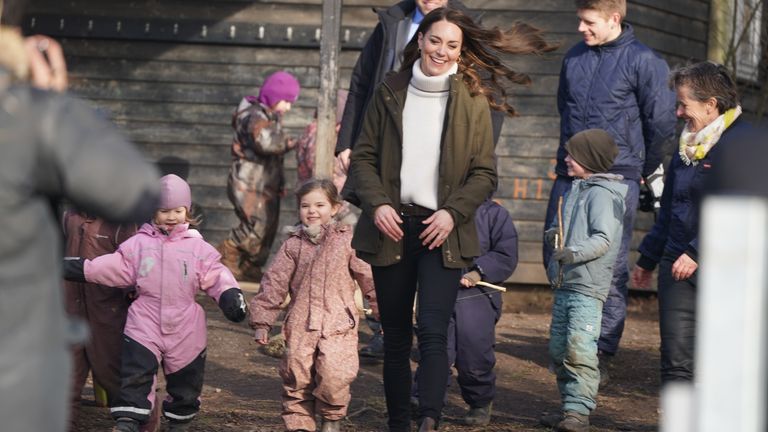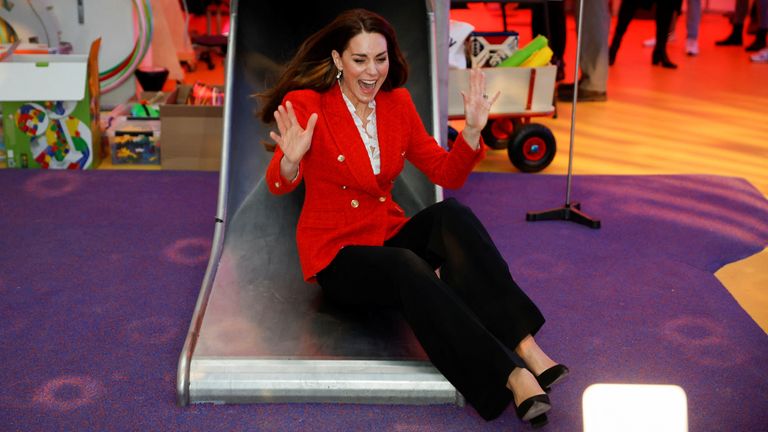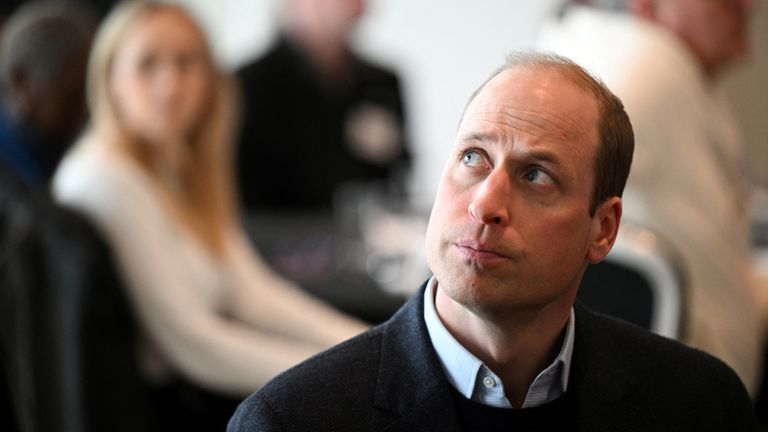A trial funded by the Princess of Wales for health visitors has had “overwhelmingly” positive results.
The Centre for Early Childhood – a foundation set up by Kate to explore the importance of a child’s early years on development into adulthood – funded the study which tested a new system for assessing babies.
Health visitors from two locations were trained to use the Alarm Distress Baby Scale (ADBB), which uses indicators such as facial expressions and activity levels to understand how well babies are bonding with their parents.
Sky News had exclusive access to the health visitors in Hull who were part of the 10-month study.
Rachel Ramage, one of the team involved, said: “Babies really communicate, and they’re programmed to draw us in, they desperately want to bring you into their world.”
With ADBB health visitors are taught to observe how a baby interacts with their environment.
“We were trying to look for eye contact, facial expression how physically active a baby was, and as well how they’re vocalising,” Ms Ramage said.
This information helps health visitors identify issues and support parents.
We watched seven-week-old Mallie having a routine check. He has been bonding well with his mother and is clearly thriving.
‘I worried I was going to accidentally hurt her’
But it is not always easy adjusting to life with a newborn. We met one mother, Natasha Green, who said the early days were a “struggle”.
“I had the worst post-natal depression and I called my health visitor so many times thinking I’m going to leave, I’m going to accidentally hurt her, I’m not cut out for this,” Ms Green said about her daughter, Emily.
Thanks to the support of her health visitor, Ms Green and her daughter are doing well.
The Princess of Wales learnt about the ADBB during a trip to Denmark in 2022.
She funded the trial through the Centre for Early Childhood, the first time she has financially supported early years work.
The results have been evaluated by researchers at the University of Oxford.
“The results are overwhelmingly positive,” Jane Barlow, a professor of evidence-based intervention and policy evaluation at the university, said.
“I think it’s really enhancing the existing tools that health visitors have got and enables them to bring the baby back to the centre of everything,”
The next phase of the project involves expanding the trial to several new locations.
But the bigger hope is that this system will be used by all health visitors in the UK.
Read more:
‘Happy and smiling’ Kate filmed out shopping with Prince William
US reaction to royal story is ‘extraordinary’
Do you still trust the Royal Family?
The preliminary results are positive news for the princess, who wants her work to have a real impact. When she does return to duties, the early years is likely to be a priority.
And although she is still taking time off, we are told Kate has been “kept up to date” with her project’s progress.
